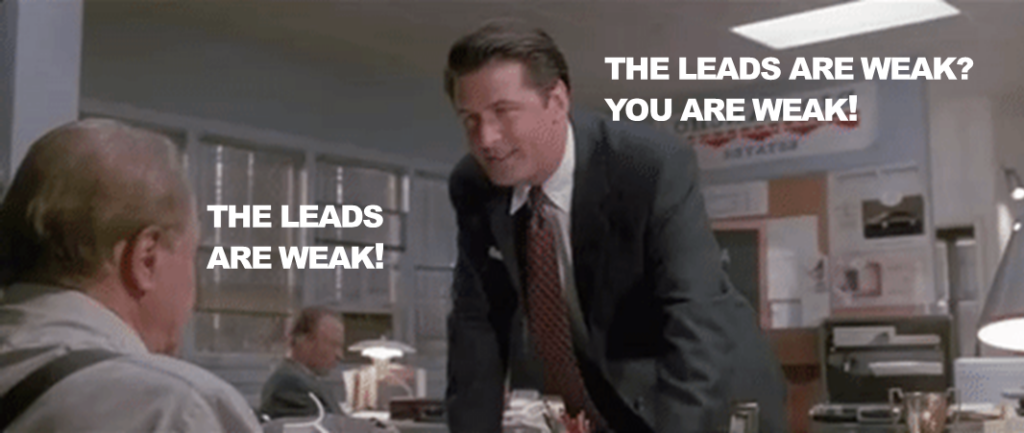Freelancers: Here’s why referrals are way, way better than leads (and what to do about it)

There are three sources of business for a freelancer: repeat business, referrals, and leads. Repeat business is great, referrals are very good, and leads are problematic.
How do you want to spend your time?
Here’s a definition of a successful freelance business: Spending your time doing what you do best for people who appreciate it, and getting paid well for it. Plus, not working too hard lining up the next job.
No freelancer I know wants to spend time qualifying new potential clients. Oh, we do it — it’s a necessary task — but we’d rather be doing work we get paid for.
Why repeat business is great and referrals are almost as good
When a client comes back for more, everything is easy. They know what you do. They know what you charge. You know what they expect. I’ve had clients come back after five years being out of contact — and it was still great. I’ve had clients hire me after going to a different company, and that was great, too.
Nobody talks about this, but the other great thing about repeat business is that you can turn it down. I recently edited a book, but when the client came back for a proposal to sell that book to publishers, I said no. I knew the content and I knew the client, and I knew I wouldn’t enjoy the work, regardless of how it paid. I’d had enough.
Referrals are almost as good, because the risk is low and the reward is high. Certainly, the client that someone refers to you is far more likely to appreciate what you do, because the person referring the client has told them you’re good to work with. This makes it far easier to convince them you’re the right freelancer for the job.
But it goes the other way, too. A client referred to you by someone you know is far less likely to be a loser. Your friend wouldn’t send a loser in your direction, at least not knowingly. That means you’re less likely to get stuck with a client who can’t make up their mind, doesn’t appreciate good work, doesn’t pay on time, or is generally somebody you can’t stand.
So referrals mean the potential client appreciates you, and you will likely respect the potential client — a solid start to a working relationship.
Leads are a problem
“I read your website (or your book) and I want to work with you.” That’s a lead.
Does this person understand what you do? Maybe. People read your site or book and get all sorts of wrong ideas.
Does this person understand what you charge? Probably not.
Does this person need freelance work that you should be doing? Figuring that out is work.
I get leads all the time. I have to qualify them. I have to look them up on LinkedIn. I have email with them to get detail. I have to get them on the phone. I have to start a relationship and then explain what I do and understand what they want and see if there is a match. That’s unpaid work.
Often that work is worth it, but often it is not — it’s waste.
In large companies, there are salespeople whose job is to qualify leads. If you’re a freelancer, there’s just you. And you’re spending time on qualifying leads when you could be doing paid work for people who appreciate it.
Don’t get me wrong. Leads are better than no leads (and no business). But they’re expensive until you’ve qualified them and begun working with them.
What it means
Treat your clients like gold, because their repeat business is gravy, and their referrals are golden.
Cultivate your network, because that where your referrals come from.
And make your website and your marketing materials as crystal clear as possible, so people know what to expect. Give them the chance to qualify themselves.
Two-thirds of my business now is repeat business or referrals. And that is making me very happy.